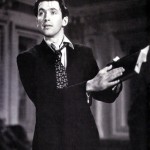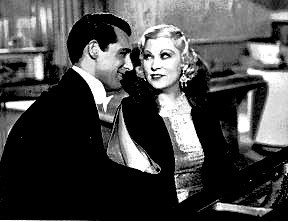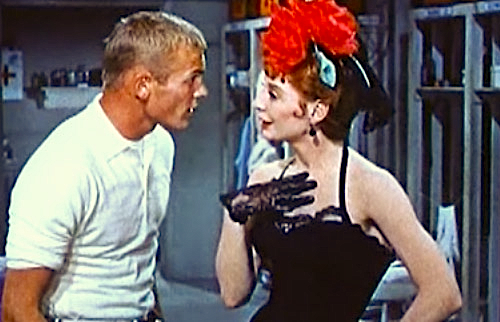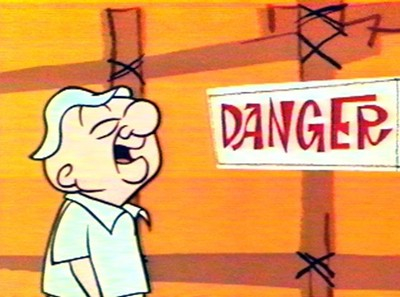
That’s an actual stone in my yard, believe it or not, one that apparently went out of its way to anthropomorphize itself for my illustrative pleasure. If rocks can be that helpful and friendly, it gives me great hope for human beings.
Which is my subtle way of leading into asking: after these last few weeks of posts, have you started to have dreams about pitching? If they’re not nightmares, and you’re scheduled to pitch at a conference anytime soon, you’re either a paragon of mental health, a born salesperson, or simply haven’t been paying very close attention. Either that, or I’ve seriously underemphasized the potential pitfalls.
For this, our last Pitchingpalooza post, I’m going to assume that you either are waking up in the night screaming or that I haven’t yet explained the conference environment adequately. So fasten your seatbelts — I’m going to be taking you on a guided tour of false expectations, avoidable missteps, and just plain disasters.
Hey, forewarned is forearmed. Or at least less stupefied in the moment.
First-time pitchers often harbor fears of inadvertently making a poor impression upon an agent or editor in a social situation, thereby nullifying their chances of being able to wow ‘em with a pitch in a formal meeting. I wish I could say that this is an unfounded fear, but actually, it’s pretty reasonable: one doesn’t have to spend much time hanging around that bar that’s never more than 100 yards from any writers’ conference in North America to hear a few horror stories about jaw-droppingly rude writers.
And I don’t know about you, but one of my more dubious gifts as a human being is an uncanny ability to find the most institutionally powerful person in the room and catch him in a misstatement or crack a joke that skewers his ego, generally before I know who he is. (It’s one of the reasons I elected to leave academia, as a matter of fact, as several past presidents of the American Political Science Association know to their sorrow. Fortunately for me, the step from spotting the incorrectly-placed comma in a constitution that would result in half the population’s losing a right to editing manuscripts was a relatively small one.)
Hard to imagine how this particular trait would have provided my ancestors with enough of a survival advantage to justify its being passed down the evolutionary line, but I do seem to have been born with it. Many are the family stories about the toddler critiquing the pediatrician’s sartorial choices.
Honestly, does anybody look good in those tacky white polyester coats?
Before any of my fellow compulsive truth-tellers begin to panic, let me hasten to add that agents’ and editors’ anecdotes are almost invariably about genuinely outrageous approach attempts, not minor faux pas. And that’s not just because “You’re not going to believe this, but a pitcher just forgot to tell me whether is book is fiction or nonfiction” isn’t nearly as likely to garner sympathy from fellow bar denizens as “This insane writer just grabbed my arm as I was rushing into the bathroom and refused to stop talking for 20 minutes.”
For one thing, the former is too common a phenomenon to excite much of a response from other agents. Unfortunately, though, the latter happens often enough that some agents turn against hallway pitching for life. As, indeed, many a product of the post-conference rumor mill can attest.
However — and this is a big however — in my experience, the aspiring writers who sit around and fret about being the objects of such anecdotes are virtually never the folks who ought to be worrying about it. These are not the kind of gaffes that your garden-variety well-mannered person is likely to commit.
The result: polite people end up tiptoeing around conferences, terrified of doing the wrong thing, while the rude stomp around like Godzilla with P.M.S. And then, once an agent who has been smashed into by one Godzilla too many complains on a blog or in an interview about how impolite writers are, the naturally courteous cringe, while the rude remain unfazed. Thus are the polite rendered more and more fearful of running afoul of an unspoken rule or two.
Case in point: technologically-savvy reader wrote in last year to ask if it was considered appropriate to take notes on a laptop or Blackberry during conference seminars. It’s still not very common (surprising, given how computer-bound most of us are these days) but yes, it is acceptable, under two conditions.
First, if you do not sit in a very prominent space in the audience — and not solely because of the tap-tap-tap sound you’ll be making. Believe it or not, it’s actually rather demoralizing for a lecturer to look out at a sea of faces that are all staring at their laps.. Are these people bored out of their minds, the worried speaker wonders, or merely taking notes very intensely?
Don’t believe me? The next time you attend a lecture of any sort, keep your eyes on the teacher’s face, rather than on your notes, your Blackberry, or that Octavia Butler novel you’ve hidden in your lap because you can’t believe that your boss is making you sit through a talk on the importance of conserving paper clips for the third time this year.
I guarantee that within two minutes, the teacher will be addressing half of her comments directly to you; consistent, animated-faced attention is THAT unusual in a lecture environment. The bigger the class, the more quickly she will focus upon the one audience member who is visibly interested in what she is saying.
Heck, in the university where I used to teach, active listening was so rare that occasionally, one or another of my colleagues would get so carried away with appreciation that he would marry a particularly attentive student. One trembles to think what these men would have done had they been gripping enough lecturers to animate an entire room.
Back to the Blackberry issue. It’s also considered, well, considerate to ask the speaker before the class if it is all right to use any electronic device during the seminar, be it computer, iPhone, or tape recorder.
Why? Think about it: if your head happens to be apparently focused upon your screen, how is the speaker to know that you’re not just checking your e-mail? Also, in these decadent days, when the antics of unwary pets and clumsy humans often go viral, how may a speaker be sure that you are not recording him with an eye to posting his speech beneath unflattering lighting on YouTube?
Enough about the presenters’ problems; let’s move on to yours. Do be aware that attending a conference, particularly your first, can be a bit overwhelming. You’re going to want to pace yourself.
“But Anne!” conference brochure-clutching writers everywhere pipe up. “The schedule is jam-packed with offerings, many of which overlap temporally! I don’t want to miss a thing!”
Yes, it’s tempting to take every single class and listen to every speaker, but frankly, you’re going to be a better pitcher if you allow yourself to take occasional breaks. Cut yourself some slack; don’t book yourself for the entire time.
Why? Well, let me ask you this: would you rather be babbling incoherently during the last seminar of the weekend, or raising your hand to ask a coherent question?
Before you answer that, allow me to add: since most attendees’ brains are mush by the end of the conference, it’s generally easier to get close to an agent or editor who teaches a class on the final day. Fewer lines, less competition.
Do make a point of doing something other than lingering in the conference center for three or four days straight. Go walk around the block. Sit in the sun. Grab a cup of coffee with that fabulous literary fiction writer you just met. Hang out in the bar that’s never more than 100 yards from any writers’ conference; that tends to be where the already-agented and already-published hang out, anyway.
And don’t you dare feel guilty about doing any of these things. Skipping the occasional seminar does not constitute being lax about pursuing professional opportunities: it is smart strategy, to make sure you’re fresh for your pitches. If you can’t tear yourself away, take a few moments to close your eyes and take a few deep breaths, to reset your internal pace from PANIC! to I’m-Doing-Fine.
I know that I sound like an over-eager Lamaze coach on this point, but I can’t overemphasize the importance of reminding yourself to keep breathing throughout the conference. A particularly good time for a nice lung-filling is immediately after you sit down in front of an agent or editor.
Trust me: your brain could use the oxygen right around then. It will help you calm down so you can make your most effective pitch.
And at the risk of sounding like the proverbial broken record, please, please, PLEASE don’t expect a conference miracle. Writing almost never sells on pitches alone, no matter how many times you have heard that apocryphal story about THE HORSE WHISPERER. You are not going to really know what an agent thinks about your work until she has read some of it.
Translation: it’s almost unheard-of for an agent to sign up a client during a conference. (And no, I have no idea why so many conference-organizers blithely hand out feedback forms asking if you found an agent at the event. Even the most successful conference pitchers generally don’t receive an offer for weeks, if not months.)
Remember, your goal here is not to be discovered on the spot, but to get the industry pro in front of you to ask to read your writing. Period.
Yes, I know: I’ve said this before. Repeatedly, throughout this very series. And I’m going to keep saying it as long as there are aspiring writers out there who walk into pitch meetings expecting to hear the agent cry, “My God, that’s the best premise since OLIVER TWIST. Here’s a representation contract — and look, here’s my favorite editor now. Let’s see if he’s interested. I want this book sold by midnight!”
Then, of course, the editor falls equally in love with it, offers an advance large enough to cover New Hampshire in $20 bills, and the book is out by Christmas. As an Oprah’s Book Club selection, naturally, even though neither the Oprah show nor her book club exist anymore.
Long-time readers, chant along with me now: this is not how the publishing industry works. This is not how the publishing industry works. This is not how the publishing industry works…
Did I say that you could stop repeating it?
The key to being a happy conference-goer is not only to realize that the popular conception of how books move from manuscript to publication is dead wrong, but to believe it. Having to make a significant effort in order to get an agent to read your manuscript is normal.
Thus the appeal of conference pitching: done well, it will allow you to skip the querying stage and pass directly to the submission stage. So being asked to send pages is a terrific outcome for this situation, not a distant second place to an imaginary reality.
Admittedly, though, that is easy to forget in the throes of a pitch meeting. Almost as easy as forgetting that a request to submit is not a promise to represent or publish. Out comes the broken record again:
Whatever an agent or editor says to you in a conference situation is just a conversation at a conference, not the Sermon on the Mount or testimony in front of a Congressional committee. There is no such thing as an implied offer of representation or publication; there are only concrete offers and preliminary conversations. Everything is provisional until some paper has changed hands.
This is equally true, incidentally, whether your conference experience includes an agent who actually starts drooling visibly with greed while you were pitching or an editor in a terrible mood who raves for 15 minutes about how the public isn’t buying books anymore. Until you sign a mutually-binding contract, no promises — or condemnation, for that matter — should be inferred or believed absolutely.
Try to maintain perspective. If you can’t, stop and take a few deep breaths.
Admittedly, perspective is genuinely hard to achieve when a real, live agent says, “Sure, send me the first chapter,” especially if you’ve been shopping the book around for eons. But it is vital to keep in the back of your mind that eliciting this statement is not the end of your job as a marketer. Oh, look, here’s another golden oldie from the broken record collection:
Regardless of how much any given agent or editor says she loves your pitch, she’s not going to make an actual decision until she’s read at least part of it. And she’s not going to clear her schedule for the rest of the month to read it, either.
So even if you are over the moon about positive response from the agent of your dreams, please, I beg you, DO NOT STOP PITCHING IN THE HALLWAYS. Try to generate as many requests to see your work as you can.
Why, yes, you’re right: that is going to be a heck of a lot of work. What’s your point?
No matter who says yes to you first, you will be much, much happier two months from now if you have a longer requested submissions list. Ultimately, going to a conference to pitch only twice, when there are 20 agents in the building, is just not efficient.
Far too many aspiring writers will just give up after one successful pitch, assuming, often wrongly, that a friendly pitch meeting means a predisposition to like a submission or an implied promise to read it quickly. It doesn’t, and it isn’t. So it is VERY much in your interest to send out submissions to several agents at once, rather than one at a time.
I heard that gasp, but no, there is absolutely nothing unethical about this, unless (a) one of the agencies has a policy precluding multiple submissions (rare) or (b) you actively promised one agent an exclusive. (I would EMPHATICALLY discourage you from granting (b), by the way — and if you don’t know why, please see the EXCLUSIVES TO AGENTS category at right before you even CONSIDER pitching at a conference.)
Some of you look concerned, but trust me, this is what the agents will be expecting you to do. If an agent wants an exclusive peek, she will ask for one point-blank; again, there’s no such thing as a tacit request for a solo submission. By all means, tell each of the agents in the cover letter that others are looking at it, but don’t make the hugely pervasive mistake of granting an effective exclusive that the agent does not expect, simply because she was the one you liked best.
I see some of you blushing: you’ve made this mistake, haven’t you? And you ended up waiting six months to hear back — or did not hear back at all, right?
“Wow, Anne!” those of you who have lived through this highly unpleasant experience gasp. “What kind of a crystal ball are you wielding these days? That’s precisely what happened to me!”
No crystal ball needed on this one: it happens to pitchers all the time. They misunderstand the level of connection they made with agents at conferences, committing themselves in principle before the agents in question have even seen their work. “Well, we just clicked,” these writers say.
What they tend not to say is that let’s face it, it’s a heck of a lot less work — not to mention less wearing on the nerves — to send out one submission than, say, seven or eight. It’s also less work not to keep querying while that nice agent from the conference considers your submission.
And then one sad day, months after the conference, they receive the rejection, often as a form letter. “What happened?” one-at-a-timers cry. “I thought we clicked. And now I feel like it’s too late to send out those other requested materials.”
Actually, if less than a year has passed since the conference, it isn’t. But just think how much happier a writer who could say, “Well, I’m sad that the agent I liked best decided against representing my book, but at least those six other agents are still considering it,” would be in that moment. Or even one in a position to sigh with relief and murmur, “Wow, am I ever glad that I kept querying throughout these last six months. Now, I have other requests for materials.”
Besides, your time is valuable: sending out those post-conference submissions one at a time, waiting for a response from each before moving on to the next, could eat up years. Just mention in your cover letter to each that other agents are also reading it, and keep moving forward.
Trust me, hearing that it’s a multiple submission not going to annoy anyone. That old saw about agents’ getting insulted if you don’t submit one at a time is absolutely untrue. Let’s toss another broken record onto the turntable:
Unless an agent asks for an exclusive look at your work, it’s neither expected nor in your interest to act as if s/he has. In fact, hearing that others are interested may even make your book seem more attractive.
Yet another reason you should keep on pitching in those hallways: it tends to be a trifle easier to get to yes than in a formal pitch. Counter-intuitive, isn’t it? Yet in many ways, casual pitches are more persuasive.
Why? For one simple reason: time. In a hallway pitch, agents will often automatically tell a writer to submit the first chapter, simply in order to be able to keep on walking down the hall, finish loading salad onto their plates, or be able to move on to the next person in line after the agents’ forum.
Seriously, it’s true. If the agent handles your type of work, the premise is interesting, and you are polite, they will usually hand you their business cards and say, “Send me the first 50 pages.”
Okay, pop quiz to see who has been paying attention to this series so far: after the agent says this, do you:
(a) regard it as an invitation to talk about your work at greater length?
(b) regard it as an invitation to a lifetime of friendship?
(c) regard it as a promise to make you the next bestselling author?
(d) say, “Gee, you’re a much nicer human being than {insert name of other agent here}. He turned me down flat,” and go on to give details about how mean he was?
(e) launch into a ten-minute diatribe about the two years you’ve spent querying this particular project?
(f) thank her profusely and vanish in a puff of smoke, so you may pitch to another agent? And before you send out the requested pages IN THEIR ENTIRETY, IN HARD COPY, and OUT LOUD?
If you said anything but (Ff, I can only advise you go back and reread the Pitchingpalooza series — and as well as the entirety of the INDUSTRY ETIQUETTE category at right as well. You need to learn what’s considered polite and reasonable in the industry, pronto.
In a face-to-face pitch in a formal meeting, agents tend to be more selective than in a hallway pitch. Again, the reason is time: they’ve got more of it. In a ten-minute meeting, there is actual leisure to consider what you are saying, to weigh the book’s merits.
In short, enough time to save themselves some down the line by rejecting your book now.
Why might this seem desirable to them? Well, think about it: if you send it to them at their request, someone in their office is ethically required to spend time reading it, right? By rejecting it on the pitch alone, they’ve just saved Millicent the screener 5 or 10 minutes.
In a perverse way, a formal pitch can be significantly harder to give successfully than a hallway one. Sitting down in front of an agent or editor, looking her in the eye, and beginning to talk about your book can be quite a bit more intimidating than giving a hallway pitch.
Think of it this way: every time you buttonhole an agent and say those magic first hundred words is one less query letter you’re going to need to send out.
Still breathing at least once an hour? Good; I’ll move on.
As a veteran of many, many writers’ conferences all over the country, I can tell you from experience that they can be very, very tiring. Especially if it’s your first conference. Just sitting under fluorescent lights in an air-conditioned room for that many hours would tend to leech the life force out of you all by itself, but here, you will be surrounded by a whole lot of very stressed people while you are trying to learn as much as you possibly can.
As you may have noticed, most of my advice on how to cope with all of this ambient stress gracefully is pretty much what your mother said to you before you went to your first party: be polite; be nice to yourself and others; watch your caffeine and alcohol intake, and make sure to drink enough water throughout the day. Eat occasionally.
And you’re not wearing THAT, are you?
Actually, on the only occasion when my mother actually made that comment upon something I was wearing, she had made the frock in question. For my senior prom, she cranked out a backless little number in midnight-blue Chinese silk that she liked to call my “Carole Lombard dress,” for an occasion where practically every other girl was going to be wearing something demure and flouncy by Laura Ashley. It was, to put it mildly, not what anyone expected the valedictorian to wear.
She hastened to alter it. Even with the addition of quite a bit of additional fabric, most of the male teachers followed me around all night long. The last time I bumped into my old chorus teacher, he spontaneously recalled the dress. “A shame that you didn’t dress like that all the time,” he said wistfully.
Oh, what a great dress that was. Oh, how inappropriate it would have been for a writers’ conference — or really, for any occasion that did not involve going out for a big night on the town in 1939. But then, so would those prissy Laura Ashley frocks.
Which brings me back to my point (thank goodness).
I wrote on what you should and shouldn’t wear to a conference at some length in an earlier post, but if you find yourself in perplexity when you are standing in front of your closet, remember this solid rule that will help you wherever you go within the publishing industry: unless you will be attending a black-tie affair, you are almost always safe with what would be appropriate to wear to your first big public reading of your book.
And don’t those of you who have been hanging around the industry for a while wish someone had shared THAT little tidbit with you sooner?
To repeat a bit more motherly advice: do remember to eat something within an hour or two of your pitch meeting. I know that you may feel too nervous to be hungry but believe me, if you were going to pick an hour of your life for feeling light-headed, your first encounter with your future agent is not a wise choice. If you are giving a hallway pitch, or standing waiting to go into a meeting, make sure not to lock your knees, so you do not faint.
And practice, practice, practice before you go into your meetings. This is the single best thing you can do in advance to preserve yourself from being overwhelmed.
Fortunately, conferences are peculiarly rich in opportunities to practice talking about your book. As I pointed out yesterday, you will be surrounded by hundreds of other writers. Introduce yourself, and practice pitching to them. Better still, find people who share your interests and get to know them. Share a cookie; talk about your work with someone who will understand.
Because, really, is your life, is any writer’s life, already filled with too many people who get what we do? You will be an infinitely happier camper in the long run if you have friends who can understand your successes and sympathize with your setbacks as only another writer can.
I know this from experience, naturally. The first thing I said to many of my dearest friends in the world was, “So what do you write?”
To which the savvy conference-goer replies — chant it with me now, everyone — the magic first hundred words.
In fact, the first people I told about my first book deal — after my SO and my mother, of course — were people I had met in precisely this manner. Why call them before, say, my college roommate? Because ordinary people, the kind who don’t spend all of their spare time creating new realities out of whole cloth, honestly, truly, sincerely, often have difficulty understanding the pressures and timelines that rule writers’ lives.
I was lucky: I already knew a lot of writers, including my college roommate, who recently sold her first novel to Algonquin. (Well done, Julie!) But the very first words my erstwhile SO’s mother uttered after hearing that my memoir had sold were, “What do you mean, it’s not coming out for another couple of years? Can’t you write any faster than that?”
This kind of response is, unfortunately, common, and frankly, most people’s eyes glaze over about 42 seconds into an explanation of how a print queue works. I don’t think any writer ever gets used to seeing her non-writer friends’ faces fall upon being told that the book won’t be coming out for a year or two, at least, after the sale that’s just happened, or that signing with an agent does not automatically equal a publication contract, or that not every book is headed for the bestseller list.
Thought I got off track from the question of how to keep from getting stressed out, didn’t you? Actually, I didn’t: finding buddies to go through the conference process with you can help you feel grounded throughout both the weekend and your writing life.
Not only are these new buddies great potential first readers for your manuscripts, future writing group members, and people to invite to book readings, they’re also folks to pass notes to during talks. (Minor disobedience is a terrific way to blow off steam, I find.) You can hear about the high points of classes you don’t attend from them afterward.
And who wouldn’t rather walk into a room with 300 strangers and one keynote speaker with a newfound chum than alone?
Making friends within the hectic conference environment will help you retain a sense of being a valuable, interesting individual far better than keeping to yourself, and the long-term benefits are endless. To paraphrase Goethe, it is not the formal structures that make the world fell warm and friendly; friends make the earth feel like an inhabited garden.
So please, for your own sake: make some friends at the conference, so you will have someone to pick up the phone and call when the agent of your dreams falls in love with your first chapter and asks to see the entire book. And get to enjoy the vicarious thrill when your writing friends leap their hurdles, too.
You think it didn’t make my day when Julie’s book sold? It made my month. It showed that being serious, talented, and smart can indeed pay off in the long run.
This can be a very lonely business. Nothing brightens the long, slow slog like opening your e-mail when you’re really discouraged to find a message from a friend who’s just sold a book or landed an agent.
Well, okay, I’ll admit it: getting a call from your agent telling you that YOU have just sold a book is rather more of a day-brightener. As is the call saying, “I love your work, and I want to represent you.”
But the other is still awfully darned good. Start laying the groundwork for it now.
One more little thing that will help keep you from stressing out too much: while it’s always nice if you can be so comfortable with your pitch that you can give it from memory, it’s probably fair to assume that you’re going to be a LITTLE bit nervous during your meetings. So do yourself a favor — write it all down; give yourself permission to read it when the time comes, if you feel that will help you.
Really, it’s considered perfectly acceptable, and it will keep you from forgetting key points. Please humor me by writing on the top of the paper, in great big letters: BREATHE!
Do remember to pat yourself on the back occasionally, too, for being brave enough to put your ego on the line for your work. As with querying and submitting, it requires genuine guts to submit your ideas to the pros; I don’t think writers get enough credit for that.
In that spirit, I’m going to confess: I have one other conference-going ritual, something I do just before I walk into any convention center, anywhere, anytime, either to teach or to pitch. It’s not as courteous or as public-spirited as the other techniques I have described, but I find it is terrific for the mental health. I go away by myself somewhere and play at top volume Joe Jackson’s song Hit Single and Jill Sobule’s (I Don’t Want to Get) Bitter.
The former, a charming story about dumbing down a song so it will stand a better chance of making it big on the pop charts, includes the perfect lyric to hum while walking into a pitch meeting:
And when I think of all the years of finding out
What I already knew
Now I spread myself around
And you can have 3 minutes, too.
If that doesn’t summarize the difference between pitching your work verbally and being judged on the quality of the writing itself, I should like to know what does. (Sorry, Joe: I would have preferred to link above to your site, but your site mysteriously doesn’t include lyrics.)
The latter, a song about complaining, concludes with a pretty good mantra for any conference-goer:
So I’ll smile with the rest, wishing everyone the best.
And know the one who made it made it because she was actually pretty good.
‘Cause I don’t want to get bitter.
I don’t want to turn cruel.
I don’t want to get old before I have to.
I don’t want to get jaded.
Petrified and weighted.
I don’t want to get bitter like you.
I hum that one a lot during conferences, I’ll admit — and not because you can’t throw a piece of bread at a major writers’ conference without hitting someone just delighted to moan about how hard it is to get published these days. Cynicism often masquerades as knowledge. I tend to start humming when a bestselling author who landed his agent 25 years ago, when the task was significantly easier, or a more recent success whose agent is her cousin’s next-door neighbor’s husband tells a roomful of people who have been querying for the past five years that good writing will inevitably find a home.
Perhaps, but certainly not easily. The Agency Fairy just receives too many requests for help these days. Anyone who tells you that the only possible barrier to landing an agent is the quality of your writing simply isn’t familiar with the current reality of the representation market.
What you’re trying to do is not easy or fun, but you can do it. You are your book’s best advocate; act like it. And remember, all you’re trying to do is to get these nice people to take a look at your writing.
No more, no less. It’s a perfectly reasonable request for an aspiring writer to make to an agent, and you’re going to be terrific at making it. How do I know? Because you’ve been sensible and brave enough to face your fears and prepare like a professional.
Kudos to you for taking your writing that seriously. Keep breathing, everyone, and keep up the good work!




 (1) As with the keynote and the elevator speech, most pitchers make the mistake of trying to turn the pitch proper into a summary of the book’s plot, rather than a teaser for its premise.
(1) As with the keynote and the elevator speech, most pitchers make the mistake of trying to turn the pitch proper into a summary of the book’s plot, rather than a teaser for its premise. (2) Most pitchers don’t stop talking when their pitches are done.
(2) Most pitchers don’t stop talking when their pitches are done. (3) The vast majority of conference pitchers neither prepare adequately nor practice enough.
(3) The vast majority of conference pitchers neither prepare adequately nor practice enough. (4) Most pitchers harbor an absurd prejudice in favor of memorizing their pitches, and thus do not bring a written copy with them into the pitch meeting.
(4) Most pitchers harbor an absurd prejudice in favor of memorizing their pitches, and thus do not bring a written copy with them into the pitch meeting. (5) Most pitchers don’t realize until they are actually in the meeting that part of what they are demonstrating in the 2-minute pitch is their acumen as storytellers. If, indeed, they realize it at all.
(5) Most pitchers don’t realize until they are actually in the meeting that part of what they are demonstrating in the 2-minute pitch is their acumen as storytellers. If, indeed, they realize it at all. (6) Few pitches capture the voice of the manuscript they ostensibly represent. Instead, they tend to sound generic or vague.
(6) Few pitches capture the voice of the manuscript they ostensibly represent. Instead, they tend to sound generic or vague.
 (8) Very few pitches include intriguing, one-of-a-kind details that set the book being pitched apart from all others.
(8) Very few pitches include intriguing, one-of-a-kind details that set the book being pitched apart from all others. (9) Most pitchers assume that a pitch-hearer will hear — and digest — every word they say, yet the combination of pitch fatigue and hectic pitch environments virtually guarantee that will not be the case.
(9) Most pitchers assume that a pitch-hearer will hear — and digest — every word they say, yet the combination of pitch fatigue and hectic pitch environments virtually guarantee that will not be the case. (10) Few pitchers are comfortable enough with their pitches not feel thrown off course by follow-up questions.
(10) Few pitchers are comfortable enough with their pitches not feel thrown off course by follow-up questions. (11) Far too many pitchers labor under the false impression that if an agent or editor likes a pitch, s/he will snap up the book on the spot. In reality, the agent or editor is going to want to read the manuscript first.
(11) Far too many pitchers labor under the false impression that if an agent or editor likes a pitch, s/he will snap up the book on the spot. In reality, the agent or editor is going to want to read the manuscript first. If the agent is interested by your pitch, she will hand you her business card and ask you to send some portion of the manuscript — usually, the first chapter, the first 50 pages, or for nonfiction, the book proposal. If she’s very, very enthused, she may ask you to mail the whole thing.
If the agent is interested by your pitch, she will hand you her business card and ask you to send some portion of the manuscript — usually, the first chapter, the first 50 pages, or for nonfiction, the book proposal. If she’s very, very enthused, she may ask you to mail the whole thing.

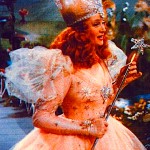 As of this moment, you have my permission to get into an elevator with an agent or editor without pitching, if you so desire. Live long and prosper.
As of this moment, you have my permission to get into an elevator with an agent or editor without pitching, if you so desire. Live long and prosper. I hereby solemnly swear that I shall not have learned the magic first hundred words and elevator speech in vain. The next time I attend a writers’ conference, I will pitch to at least three agents or editors with whom I do not have a previously-scheduled appointment.
I hereby solemnly swear that I shall not have learned the magic first hundred words and elevator speech in vain. The next time I attend a writers’ conference, I will pitch to at least three agents or editors with whom I do not have a previously-scheduled appointment. MAGIC FIRST 100 WORDS + ELEVATOR SPEECH = HALLWAY PITCH.
MAGIC FIRST 100 WORDS + ELEVATOR SPEECH = HALLWAY PITCH.
